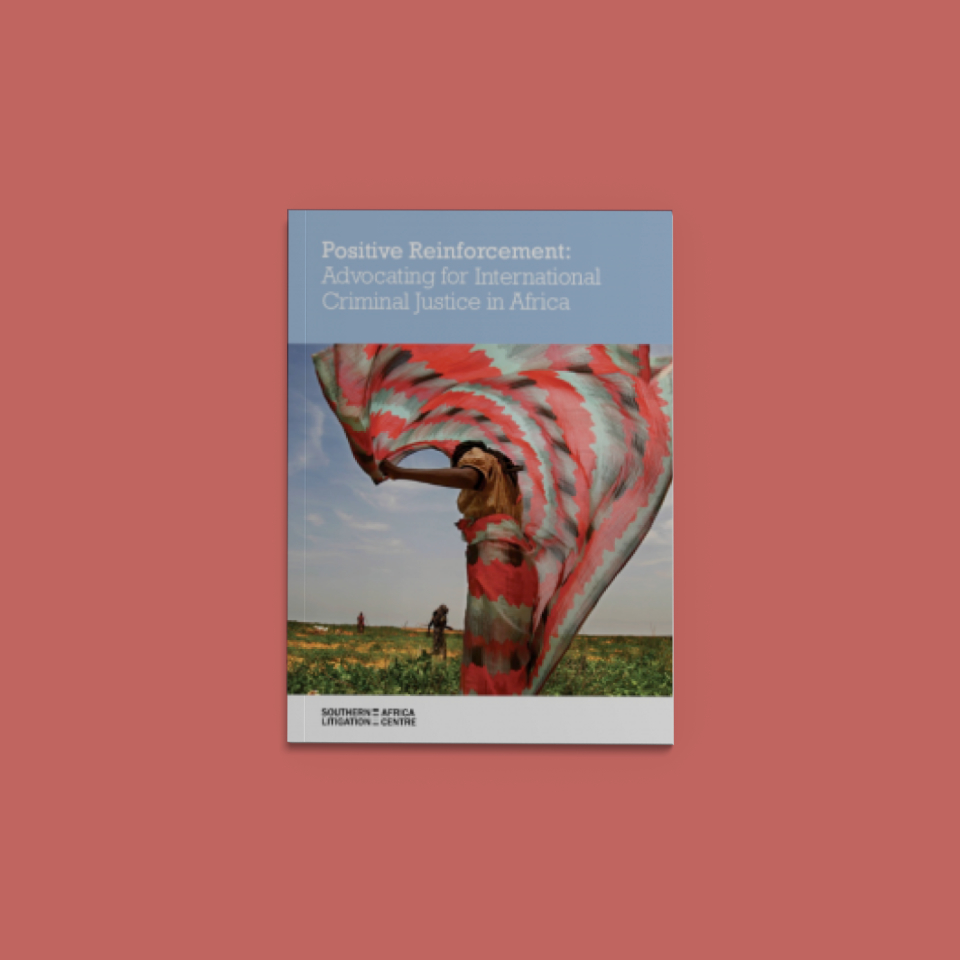
In November 2013, SALC held a series of meetings in Zambia, Botswana and Malawi to discuss the findings and recommendations in its May 2013 report, Positive Reinforcement: Advocating for International Criminal Justice in Africa, addressing accountability for perpetrators of international crimes in Africa.
The report is designed to be a useful resource and advocacy tool for African civil society working towards securing accountability and preventing impunity in Africa. It provides a comprehensive overview of international criminal justice in Africa, identifies key role players and provides a number of recommendations to civil society and governments in Africa, among others. The report also covers the development of international criminal law, discusses the role of civil society and reinforces the importance of engagement on issues of complimentarity. Key recommendations to civil society include encouraging them to lobby for and provide technical support for domestic legislation implementing the Rome Statute of the International Criminal Court (ICC); and for civil society in those countries where implementing legislation exists, to ensure, wherever possible, that the necessary institutional architecture, human capacity, and political will exists to give full effect to the legislation.
SALC with local partners organised three meetings in key southern African countries to present the report and to discuss opportunities to implement the report’s recommendations in each country. The meetings brought together members of the judiciary, individuals from the national prosecuting authority, lawyers and civil society organisations – all of whom are critical to implementing some of the recommendations in the report. Key officials who attended one of the meetings included Judge Florence Mumba and Judge Prisca Nyambe, who both served as judges at the International Criminal Tribunal for the former Yugoslavia (ICTY).
The meetings revealed that there is a lack of accessible, succinct information on the ICC and its proceedings and this has unfortunately led to a misunderstanding of the international criminal justice project as a whole. Lawyers, civil society organisations and the people they represent all seem to be misinformed. Misconceptions include that the ICC is the only mechanism that can handle international crimes. To that end, it was decided that the report should be used to bridge the knowledge gap, by using it to explain the jurisdiction of the ICC and to show that local courts can empower themselves to handle prosecution of international crimes.
Civil society organisations agreed to use the discussion and recommendations in the report to hold small local seminars to educate key actors on international criminal law and committed to widely disseminating the report.
SALC will continue to follow up with participants to ensure that the report and its recommendations are utilised by domestic actors.



